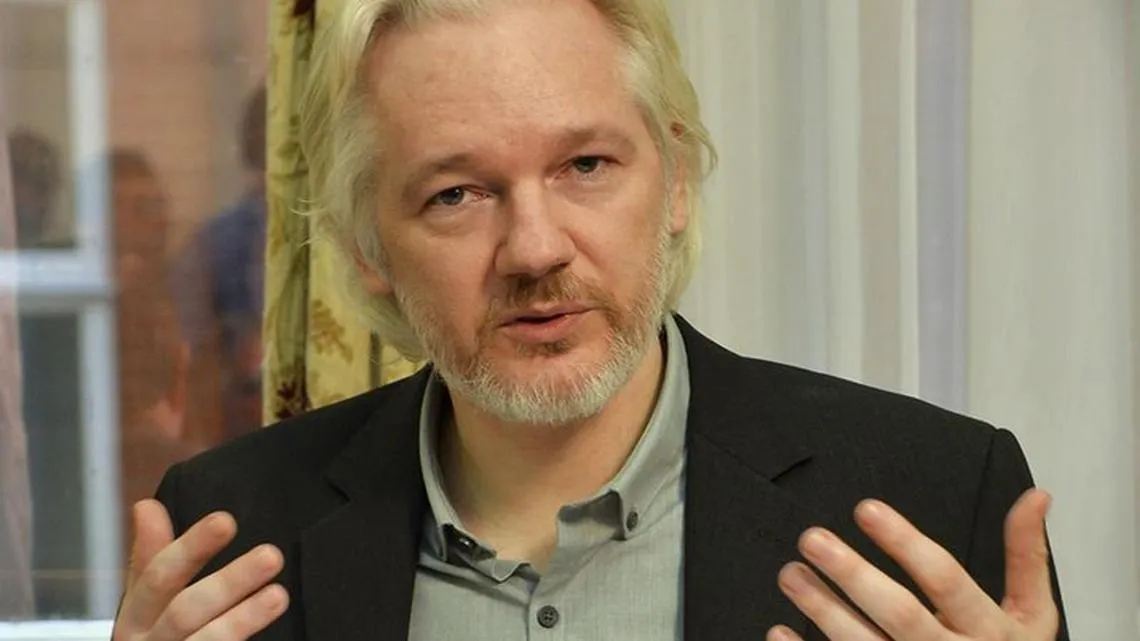Table of Contents
Jon Miltimore
Jonathan Miltimore is the Editor at Large of FEE.org at FEE.
John Joseph Mearsheimer recently summed up in a single sentence why Julian Assange should go free.
“Journalists don’t go to jail for publishing classified information in the United States,” Mr Mearsheimer, a political scientist at the University of Chicago, said in a recent video.
There has been endless ink spilled on Mr. Assange, whose lawyers on Feb 20 made an 11th-hour attempt to kill an effort to extradite the Australian journalist to the United States.
Since 2019, the WikiLeaks founder has been held in Belmarsh Prison in Britain and faces 17 charges of espionage and a single charge of computer misuse.
One item WikiLeaks published titled “Collateral Murder” was video footage of a US military airstrike in Baghdad from July 12, 2007. The classified footage shows an Apache helicopter firing a 30 mm cannon into a group of people that included two Reuters journalists. Around a dozen people were killed, and two children were injured.
Mr Assange’s decision to publish the footage, which he received from US intelligence analyst Bradley Manning (now Chelsea Manning), is why he is today in prison.
As the government’s indictment against Mr Assange states, the WikiLeaks founder didn’t have a security clearance, which is why he “conspired” with Mr Manning to obtain the footage and other records, including US State Department cables.
Mr Manning was convicted of 20 charges in 2013 and was sentenced to 35 years behind bars at Fort Leavenworth in Kansas, a sentence that was commuted in January 2017 by President Barack Obama.
Mr Assange, whose hearing at the British High Court in London concluded on Feb 21, will likely find out this month whether he’ll be extradited to the United States.
State Secrets and the Pentagon Papers
Publishing state secrets is no small matter, but as Mr Mearsheimer points out, it’s also an old game with a rich legal history.
In 1971, the New York Times published a cache of classified documents that became known as the Pentagon Papers. The Papers, which showed that the US government was lying about the Vietnam War, led to the landmark legal case New York Times Co v United States.
The case is well known, one most college students learn about in introductory classes to media and government. And just like the Assange case, it involves an insider delivering state secrets to a journalist.
Daniel Ellsberg (1931–2023) was a US military analyst who in the early 1970s, while working for the RAND Corporation, gained access to an internal government study that showed the US government’s foothold in Vietnam was far less secure than the Johnson administration had led the public to believe when it began escalating the war there.
Ellsberg leaked the study to the New York Times and other media in 1971, causing great embarrassment to the Nixon administration, which responded by leveling an array of charges against Ellsberg that carried a maximum sentence of more than a hundred years behind bars.
The charges against Ellsberg were eventually dropped, but what’s important to understand is that the New York Times was not the party charged. Ellsberg was.
As Mr Mearsheimer explains, Mr Assange is not the equivalent of Daniel Ellsberg, who broke the law by sharing state secrets. He’s the equivalent of the New York Times, which published them.
“Manning was caught and punished because she was a government employee, and she broke the law by leaking material that was classified to Assange,” Mr Mearsheimer explains. “But Assange is a journalist, and he did not break the law, as it is commonplace for journalists to publish classified information that is passed on to them by government insiders.”
‘The Number One Principle of Bureaucracy’
The parallels between the Pentagon Papers and WikiLeaks are stunning, and Mr Mearsheimer is not the only person to see them.
Ellsberg, who died last year, discussed the similarities between the cases during a Harvard Law School address in 2011. Though the government stated that both Ellsberg and Mr Assange’s actions were unlawful because they jeopardized national security, Ellsberg argued that the prosecutions stemmed from the fact that in both instances the secrets shared were deeply embarrassing to the US government.
“Nothing is more secret than evidence that later, retrospectively, would lead to accountability, which would lead to embarrassment, which would be a basis for blame, possibly for culpability [or] criminal prosecution,” Ellsberg said. “Avoiding blame is sort of the major number one principle of a bureaucracy or a politician.”
For anyone who doubts Ellsberg, there are Oval Office recordings of a discussion between President Richard Nixon and aide HR Haldeman that suggest that the government’s actions related to the Pentagon Papers were motivated not by national security, but by concerns about the government’s reputation.
“To the ordinary guy, all this is a bunch of gobbledygook,” Halderman said to President Nixon. “But out of the gobbledygook comes a very clear thing. You can’t trust the government; you can’t believe what they say…”
The Collateral Murder video is even more problematic to the government than the Pentagon Papers.
The video didn’t just confirm that government officials had reportedly lied to Reuters about what happened in Baghdad on July 12, 2007. It showed a potential war crime, one many believed the government had covered up.
Dean Yates, a former Reuters journalist who was their Baghdad bureau chief at the time of the killings, said the government’s prosecution of Mr Assange was retribution for exposing the truth.
“What [Assange] did was 100 per cent an act of truth-telling, exposing to the world what the war in Iraq looks like and how the US military lied,” Mr Yates told the Guardian in 2020. “The US knows how embarrassing Collateral Murder is, how shameful it is to the military – they know that there’s potential war crimes on that tape.”
What Mr Yates is describing is an action and cover-up that could lead to the very kind of criminal culpability Ellsberg described.
‘A Principal Pillar of a Free Government’
Viewers can view the Collateral Murder video footage and decide for themselves whether they’re watching a war crime or questionable rules of engagement that resulted in many innocent, unarmed people being killed.
What’s undeniable is that Mr Assange was a journalist sharing secrets leaked to him by a government employee.
For that reason, Mr Assange deserves the constitutional protections of the First Amendment, which explicitly states that “Congress shall make no law … abridging the freedom of speech, or of the press.”
In their wisdom, America’s Founding Fathers carved out these protections because they saw free speech and a free press as fundamental to a free people, and an essential check on government power.
“Freedom of speech is a principal pillar of a free government,” Benjamin Franklin once observed. “When this support is taken away, the constitution of a free society is dissolved, and tyranny is erected on its ruins.”
This is why, as Mr Mearsheimer says, reporters don’t go to prison in the United States for publishing state secrets. Let’s hope he’s still right.
This article originally appeared in The Epoch Times.
This article was originally published on FEE.org. Read the original article.









